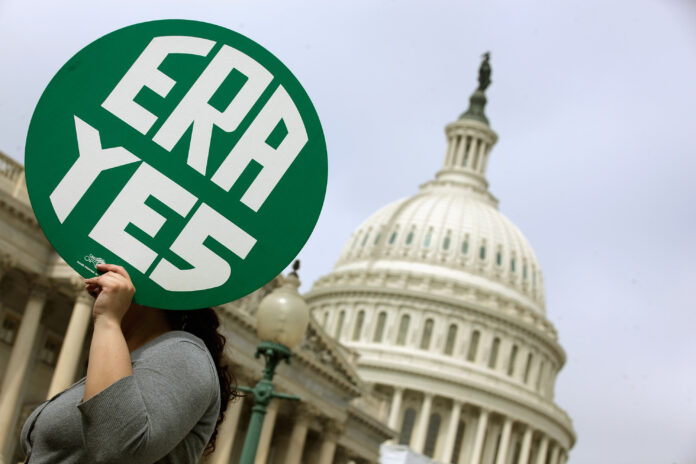This week, the Senate will vote on the ratification of the Equal Rights Amendment (ERA), a 100-year-old constitutional amendment aimed at ensuring gender equality. While long overdue, some argue that its potential ratification may now be more symbolic than anything else.
Senate Majority Leader Chuck Schumer (D-New York) announced that a vote to move towards ratifying the ERA is scheduled for Thursday. The amendment, originally introduced by suffragettes in 1923, states that “equality of rights under the law shall not be denied or abridged by the United States or by any State on account of sex.” The Senate resolution would remove the 1982 ratification deadline, which had been arbitrarily set and extended.
Schumer emphasized the urgency of the ERA, stating that its ratification would offer a constitutional remedy against sex discrimination and bring the United States one step closer to equal justice under the law. However, the path to ratification remains uncertain. A constitutional amendment requires 38 states, or 75 percent, to ratify it for inclusion in the Constitution. By 1982, only 35 states had ratified the ERA. Since then, three more states have ratified the amendment, with Virginia being the most recent in 2020. Opponents, like the Trump administration, argue that the ERA is no longer eligible for ratification due to the expired deadline.
The House has previously passed legislation to remove the deadline for the ERA, but it stalled in the Senate due to the filibuster. Its chances of passing this time around are unclear. The ERA’s long history has led to legal questions and lawsuits, leaving its status uncertain. There are doubts regarding whether states can rescind their ratification, as some Republican-controlled states have attempted to do.
Despite the largely symbolic nature of the vote, some advocates argue that explicitly incorporating protections for non-men in the Constitution could be crucial for securing victories like restoring abortion rights. Previous women’s rights decisions have relied on the 14th Amendment, which does not specifically mention sex equality. However, others contend that only a significant overhaul of the judicial system will halt the extremist judicial activism of the Supreme Court and other right-wing judges.



